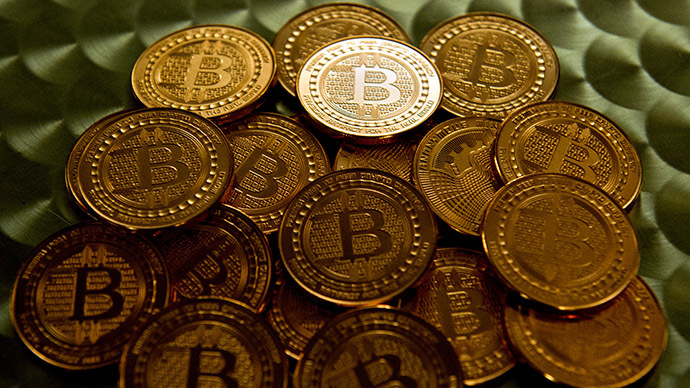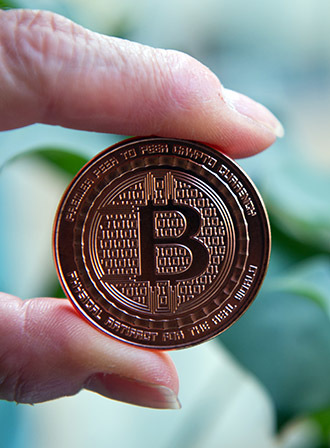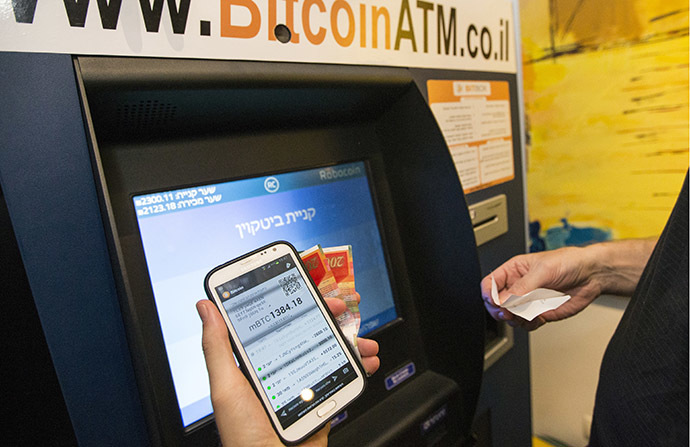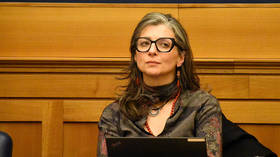Bitcoin winning over women in developing countries?

There is a steady movement led by women in developing countries to embrace the use of bitcoins.
From startups like Chain helping developers build bitcoin apps and bagging a $9.5 million investment; New York-based BlinkTrade unveiling its West African bitcoin exchange – UbuntuBitX; and Thailand getting a start up Coins.co.th; to a nearly 62 percent drop in value at $435.60 from its last year’s peak of $1,150; bitcoin’s oscillation between highs and lows continues unabated.
At the same time there is the Women’s Annex Foundation (WAF), founded by Roya Mahboob and Fereshteh Forough, operating across Afghanistan, Egypt, Pakistan and Mexico to increase digital literacy with around 60,000 users. WAF connects women to social media to create content and are paid in bitcoin. Interestingly there are 6,000 users from Afghanistan who earn an average of $250 to $400 every month.
Further still there is Alakanani Itireleng of Botswana whose first stint with the digital currency happened while she was looking for online avenues to earn.
Kunmi Otitoju of Nigeria – a Goldman Sachs alumnus with degrees from Howard University and Virginia Tech who launched her Fashion design start-up, Minku, in 2011 started accepting bitcoin as an online payment.
Hearty stories indeed, especially coming from a part of the world where women’s participation and eminence in the economic ecosystem is dismal. While African women comprise 52 percent of the total population and contribute approximately 75 percent of the agricultural work, they earn only 10 percent of African incomes and own just 1 percent of assets according to UNDP.
According to a World Bank study quoted by the Economist more than 1.3 billion women is “largely outside the formal financial system”. This gap is largest in South Asia with 41 percent of men possessing savings accounts compared to only 25 percent of women, who are less likely to get credit either from a bank or informal moneylender. Alarmingly some South Asian countries require the husband or a male family member to co-sign for a woman to get a loan.
So if financial accessibility of a woman is largely governed by cultural implications, can a decentralized digital currency bitcoin be a viable means for a better financial standing for them?
Beyond banks
Bitcoin Foundation director who has also worked in public policy as a policy assistant to a US member of Congress, Elizabeth Ploshay says: “Bitcoin absolutely promotes financial freedom to all people around the world, men and women. No one needs a bank account or even access to a bank account to receive bitcoin. Many women around the world are restricted from having bank accounts. Bitcoin is one tool to be able to reach women who have previously been barred from the global financial ecosystem.”
In the regions that WAF works most of the women users do not have bank accounts, mobile money is unaffordable. Facilitating direct payment to users is risky with confiscating money from a woman by family members being common.

Bitcoin is a good option for WAF as the beneficiary can keep her bitcoin wallet confidential.
Matthew Kenahan, founder & CEO of The Bitcoin Society, points out over two thirds of the world (approximately 2.5 Billion people) do not have access to basic financial resources. In these developing countries women are 20 percent less likely than men to have access to bank accounts as a result no access to other financial instruments such as credit, loans and insurance.
“Bitcoin allows for individuals to have complete autonomy and control over their own finances, by eliminating the need to go through banks in order to send or receive funds. Additionally, some developing countries are socially and financially oppressive towards women, and bitcoin oftentimes may be the only viable method to store and protect personal funds.”
Kenahan adds, “The inherent value of bitcoin for these women doesn’t originate from the ability to spend but rather the fact that bitcoin provides an income method which they have complete control over.”
Financially troubled Botswana with its devalued currency the Pula (BWP) prompted many like Itireleng to look for alternatives. She recounts how given the bank situation in Botswana, people’s money in their accounts is not safe but most continue to depend on banks due to lack of alternatives.
In fact an ‘under-banked’ Africa is seen as a ripe target by
bitcoin proponents. Recently Johannesburg got its first bitcoin
ATM installed by ZABitcoinATM allowing clients to insert local
cash to be exchanged for bitcoin.
Incidentally about 80 percent of African adults do not have
bank accounts. The region reportedly gets $50
billion in remittances, on which wired services like Western
Union charge a fees up to 12 percent. Experts feel bitcoin could
well be used for immediate conversion without any remittance
service.
Volatile, nationless & dangerous?
However skeptics say reliance on ‘a volatile, nationless currency is extremely dangerous.’ It lacks legal structure to provide adequate consumer protection.
As Mark T Williams, a risk management practitioner & Finance & Economics Faculty at Boston University says, “Today if someone is able to gain access to your e-wallet they can steal your wealth and you have no recourse or guarantee of getting your money back. Bitcoin is for people that can afford to take large risk and gamble and not for the global poor that has little financial cushion to fall back on.”
Bitcoin suffered a huge trust deficit following the debacle of Mt. Gox – the bitcoin exchange – which is said to have lost 850,000 bitcoins (over $480m) of which 200,000 bitcoins has reportedly been recovered.
It also came onto the radar after bitcoin was found to be used as the only form of currency accepted on Silk Road, an anonymous marketplace used to sell illegal goods including drugs.
Williams reiterates, “Bitcoin is an extremely risky currency for anyone to depend on. Daily price movements can reach 10 percent or more. Just this past week, in a single day bitcoin plummeted by 12 percent. If you were paid in Bitcoin that day you would have lost significant amounts of value. Bitcoin extreme daily price volatility can act as an excessive tax on wage earnings.”
He adds that Bitcoin is not legal tender and is not backed by sovereign taxing power. The value of bitcoin is completely determined by what a person is willing to pay for it. One day it could be worth a lot the next something much less. “In November people were willing to pay $1,200 for bitcoin. Last week as low as $309 and today approximately $525. The true value of Bitcoin remains extremely speculative and highly uncertain.”
He points out that trust in currency is built around trust that the value of the currency will be retained and honored. “Trust is developed over time and is fostered by strong economies, prudent monetary policy, strong legal structures and a history of sovereign's honoring their obligations. Bitcoin has none of these attributes that convey trust and safety.”

However, Jinyoung Lee Englund, Director of Marketing and Communications of the Bitcoin Foundation, feels the five and a half-year old bitcoin needs to be better understood by governments, lawmakers and regulators in terms of its technology, social and economic benefits. Only then they are likely to understand bitcoin's utility in a particular situation as an open source protocol and definition as a technology can be taken into consideration when trying to determine its legal status.
“Its utility varies depending on the situation, and therein lies the challenge. The way it has been designed, it could be used as a currency, as a commodity, a payment rail, secure storage or stable money supply to name a few. Today as with any new technology bitcoin is in experiment mode as investors and entrepreneurs work to build reliable tools and services for consumers. Just as the Internet and email were unknowns until companies like Google came along, we are in the era of new businesses being built using bitcoin, making it easier and safer for consumers to use.”
Englund adds the view on bitcoin’s legality varies not just from country to country but also within government departments. “While the IRS has initially proposed that bitcoin be classified as property, FinCEN has classified bitcoin as currency. And yet, both agencies share the same roof and belong to the US Treasury.”
Kenahan feels the significance of bitcoin is not so much about its status of being a currency or a commodity but that of being a ‘store value’. “Many women have no method to send, receive, or store value. Bitcoin can act as a financial instrument to send, receive, and store value without running the risk of it being seized. So while it may be perceived as ‘risky’ bitcoin in fact may present the first and only opportunity for many women to have some method of savings.”
However there are a number of fundamental challenges that the digital currency has to address. For one, it is infamously male dominated. Secondly internet access is a challenge in most of the developing countries. As Ploshay says, “Not all women have access to the internet but more have access to the internet than to bank accounts. Additionally, there is a simple need for further education. One of my main goals in the bitcoin space is to share further information on how bitcoin is providing a financial future for individuals who would have previously been excluded from the global financial ecosystem.”
For bitcoin to make inroads to the developing world especially into gender specific realm, the digital currency and its proponents have a lot of work to do in terms of understanding the realities of this part of the world and tweaking the concept accordingly.
The statements, views and opinions expressed in this column are solely those of the author and do not necessarily represent those of RT.
The statements, views and opinions expressed in this column are solely those of the author and do not necessarily represent those of RT.













